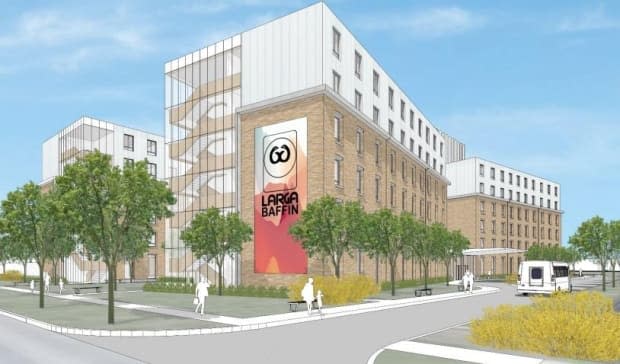Inuit leader says conversation about racism around Larga Baffin could be learning moment

Following a tense discussion around the zoning of a planned medical boarding home for Inuit in Ottawa, Inuit leader Natan Obed said there is an opportunity to learn from what was said.
While some residents rejected suggestions their opposition to the project was motivated by racism, Obed pointed out that the zoning particulars weren't the reason for him, the president of Inuit Tapiriit Kanatami, the organization that represents Inuit across Canada, to weigh in.
"The comments that have been made about basically the fear of Inuit receiving medical treatment in Ottawa [are] shocking and should continue to be the main focus of this particular conversation," he told CBC's Ottawa Morning.
The new building for Larga Baffin, which hosts Inuit attending medical appointments in Ottawa, is set to be built south of the South Keys Shopping Centre. Its current home on Richmond Road is regularly overcapacity, with staff booking additional patients in local hotels.
Last week a proposal to rezone the site went before planning committee and was approved, however the lead up to that decision saw land use planning concerns come up against fears that some in the community don't value Inuit health.
Some residents welcomed their potential new neighbours, while others were concerned about the building's size and height and still others expressed concern about increased crime and drug use, loitering and decreased property values as a result of the facility, according to a city staff feedback summary.
At a public meeting held by area Coun. Diane Deans, one woman concerned the building would affect her water pressure said: "we are here first."
Obed said he was "personally hurt" by some of the comments he called misguided and racist.

The facility was compared to the Ronald McDonald House, by its planning firm. Guests sometimes come for short stays to see a specialist, while others stay several months to receive care for more complicated health issues, like high-risk pregnancies or cancer.
Racist comments should be focus, Obed says
Sylvie Lee, with the Upper Hunt Club Community Association, said residents were not talking about the users of the building, who she said had an "undeniable legal and moral right" to access medical care.
"Myself and other residents take great offence to have been stereotyped and mislabelled by some press, some media, social media, and even insinuations from some political quarters as racist," she told CBC's Ottawa Morning.
Deans told CBC the comments about drug use or crime were outliers in the discussion and not reflective of the community.
But Obed pushed back, calling some of her own comments on the development "deeply troubling."
"Saying that these are outliers is inconsistent with the reality and the experience that Inuit have gone through," he said.
"I have a very positive association with many parts of this community. But I also understand systemic racism, and I also understand that there's a lack of understanding and respect for Inuit that many non-Inuit still have."
He pointed to the 2016 death of Inuk artist Annie Pootoogook in Ottawa and the racist comments that an Ottawa police officer made at the time.
In 2020, that officer spoke to CBC's Ottawa Morning, about what he'd learned from talking to members of the Inuit community about their experiences with colonialism and racism. He told the show he was ashamed of his past comments.
"There are learning moments," Obed said.
"In this particular case, I think all we can do is talk through why [Larga Baffin] is necessary and also then how to treat other human beings."

 Yahoo Movies
Yahoo Movies 
